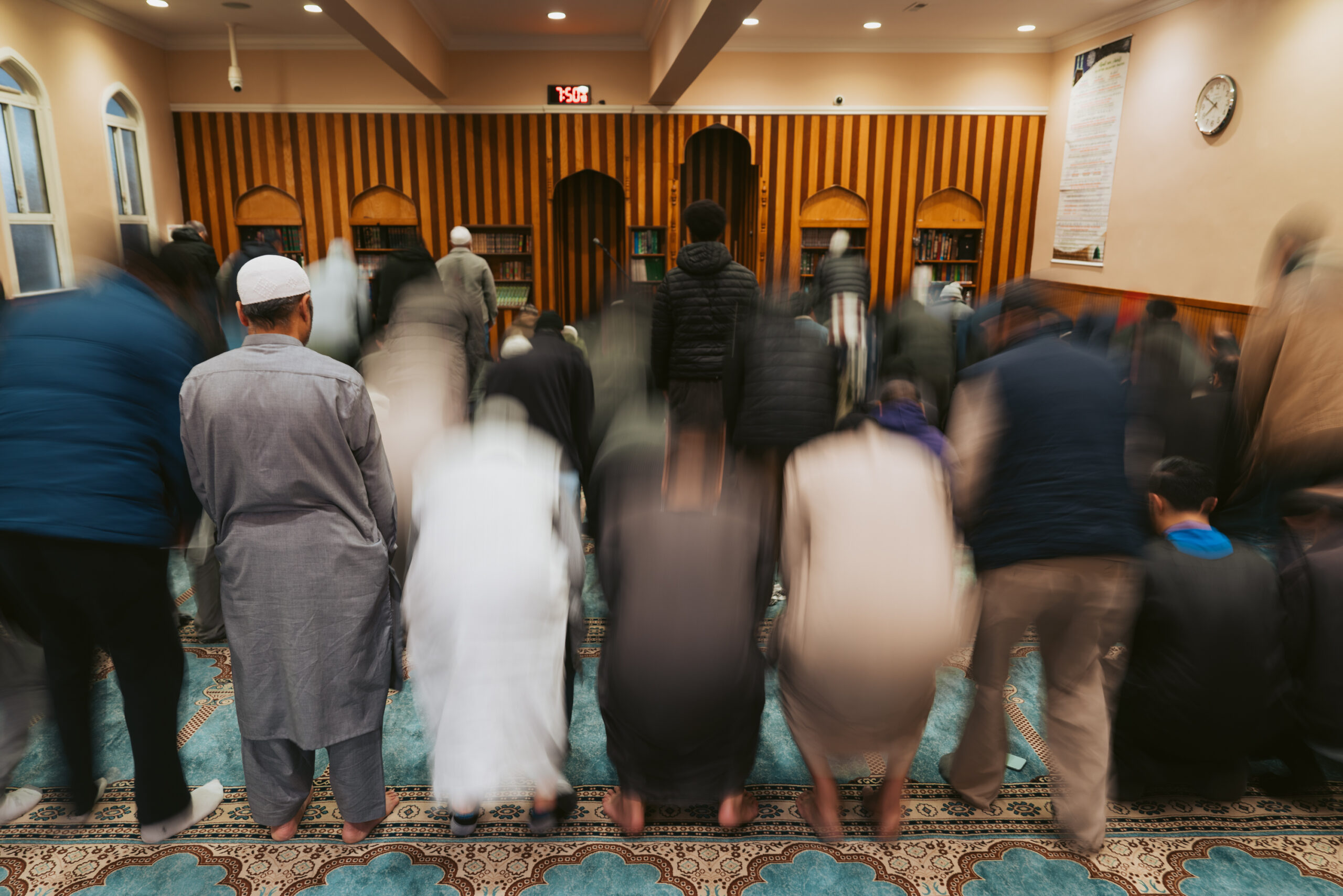Ramadan, the Muslim holy month currently underway, is not simply about fasting from sunrise to sunset.
It’s a time to reflect deeply, study the Quran and boost generosity. It’s also a time for observant Muslims to convene for iftar, the communal meal that breaks the fast.
This year, Ramadan began on March 22 and will end on April 20.
At the Islamic Center of San Francisco in Bernal Heights, congregants come together nightly for prayer and meals donated by local restaurants like beloved Bay Area mini-chain Pakwan.
The city’s oldest mosque, or masjid, estimates it has returned to pre-pandemic levels of visitors, including a recent uptick in Uzbeks. The mosque now adorned with vibrant blue carpet to pray on was founded in 1959 by college students, but these days, it often attracts tech workers who are looking for a taste of home.
“It’s so nice to see so many people coming to the mosque,” said Afsheen Ahmad, a pharmacist in San Francisco.
This year, Ahmad is unable to fast, as she is breastfeeding a 10-month-old. But she is trying to incorporate the kids more while reading more of the holy book and finding other ways to observe.
Her 5-year-old daughter’s favorite act of charity is baking cookies for friends and neighbors while trying to do mini-fasts.
“It’s also a month of giving and sharing,” Ahmad said. “She’s very considerate and caring of others.
Ramadan’s emphasis on charity means more donations to those in need, like victims of the deadly earthquakes in Syria and Turkey. To the best of their ability, Muslims are meant to give 2.5% of their wealth to charity, an amount the Islamic Center collects in a separate pot from the donations used to run its operations.
“Fasting is just part of it,” said Asif Mirza, who used to serve on the mosque’s board. “Part of that is to feel empathy for those that don’t have much. If you look at Syria right now, if you look at a lot of other countries, you kind of feel their pain first and foremost.”
With fasting for Ramadan also comes the understanding of those who are unable to fully eat in everyday life, particularly with the pinch of inflation this year.
The end of Ramadan is marked the next day with a big three-day celebration known as Eid al-Fitr, a Muslim holiday on par with Christmas, and the subject of a back-and-forth debate as to its place on San Francisco’s public school calendar.
The mosque is also fundraising for the year with a goal of $200,000 to ramp up programming, from Arabic classes that help adults understand the Quran in its original language to open house events for non-Muslims. It also wants to have weekly programs for girls and youth camping trips.
“As our children grow, they need a place to call their own,” said Jennifer Mirza, Asif’s wife. “They grow up in two different identities. It’s almost like trying to create another sense of community, so they know they belong in a place.”
